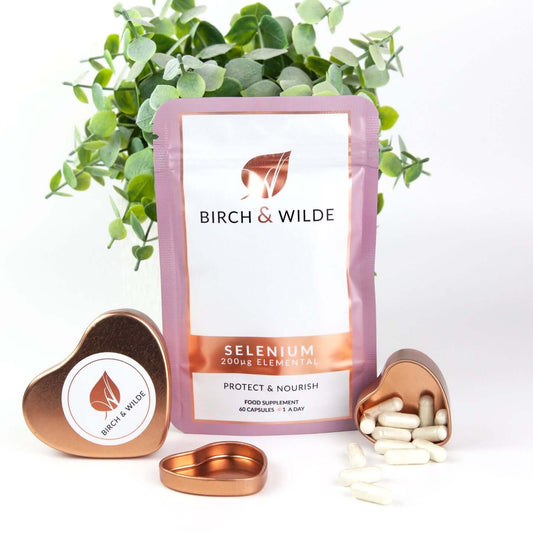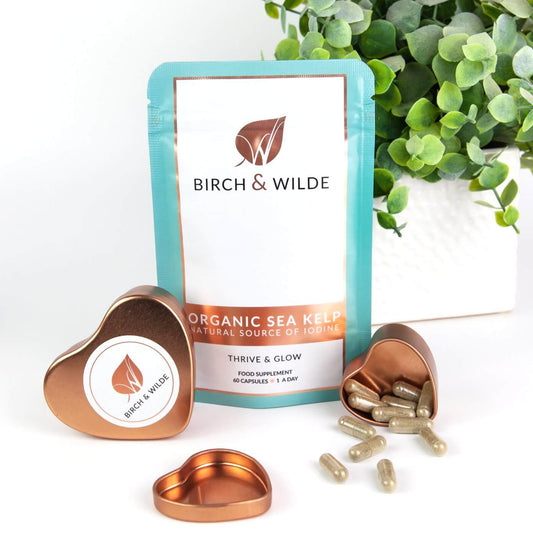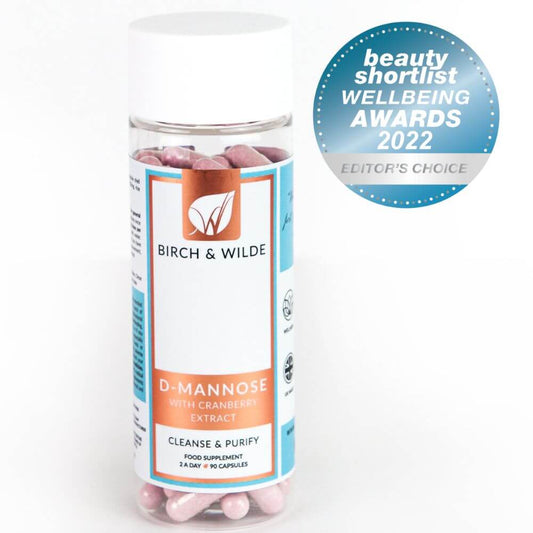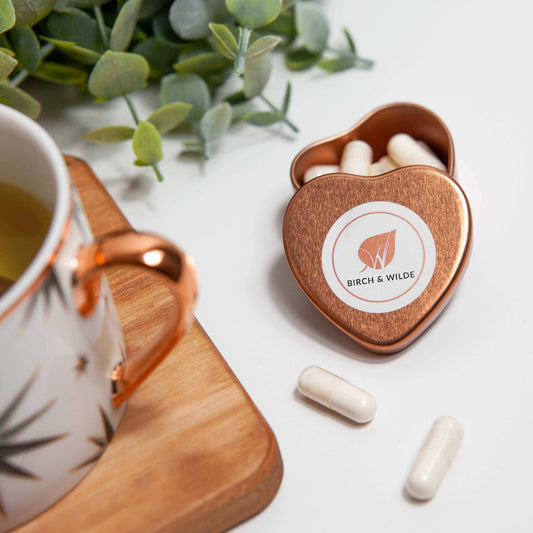Perimenopause Symptoms and our Top Support Supplements

Perimenopause is the years in the run up to the cessation of menstruation. This is often the time women experience many unpleasant symptoms such as hot flushes, low moods, night sweats, fatigue, brain fog, aches and pains and vaginal atrophy. This is not an extensive list however, and many women experience different symptoms.
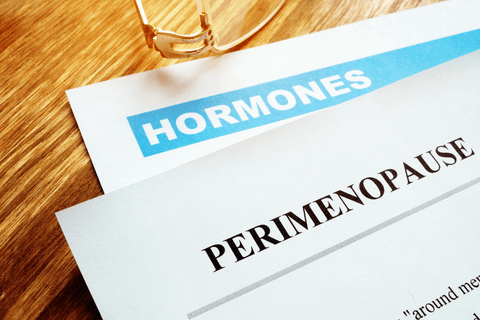
What happens during the perimenopause?
The perimenopause is when the female hormones oestrogen and progesterone start to drop. Women also naturally produce testosterone, just in much lower levels than men. As the female hormones drop, the ratio of female hormones to testosterone becomes skewed.
Oestrogen and progesterone have functions in many parts of women’s body, not just in her reproductive organs.
Brain – There are oestrogen receptors in the brain, and the hormone contributes towards mood, attention, memory, language skills and other functions. The sharp drop in oestrogen can leave women with brain fog, poor memory or recall and low moods.
Skin – Oestrogen plays a role in collagen production, so as oestrogen drops, so does collagen production. Collagen is the main structural and elastic component in skin and helps to keep us looking young.
Joints – The loss of collagen also has a negative affect on joint heath. Collagen is a major part of cartilage which stops bones from rubbing on bones (ouch). The decrease in joint protection causes stiffness and pain.
Vaginal health – Due to the loss of collagen production caused by dropping oestrogen, the vagina can become thin, less elastic and can lose some of its ‘normal’ function.
A full head of hair – The increase in the ratio of testosterone can lead to the thinning and hair loss. The decrease in collagen also affects the blood vessels in the scalp which supply nutrients for thick and luscious hair.
Heart health - Again, the loss of collagen triggered by a decrease in oestrogen can decrease the functions of blood vessels. Blood vessels rely on collagen to keep them elastic and the blood flowing well. When the blood vessels lose elasticity, this may result in higher blood pressure and general cardiovascular stress.
Fatigue – A change in female sex hormone levels can also trigger a decrease in the production of thyroid function – the gland that controls energy production and metabolism. They also trigger a drop in the function of the adrenal glands – the glands that give you your get-up-and-go!
Sleeping difficulties – The drop in oestrogen can trigger hot flushes, anxiety and a dysregulation of stress hormones. These all lead to poor quality sleep and even insomnia.
Increase in UTIs – The increase in urinary tract infections is simply down to the loss of collagen and thinning of the urogenital walls. The bacteria find it easier to invade the urogenital area and adhere, causing and infection.
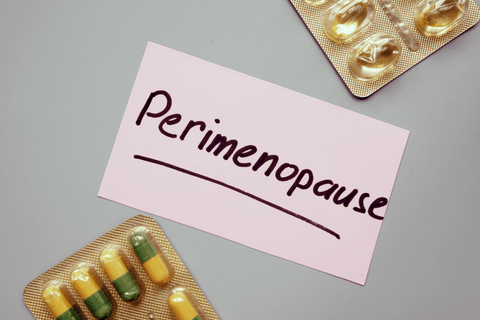
Our Top Supplements to Support Perimenopause Symptoms
B complex – B vitamins are essential for the brain and its function. B vitamins are required specifically for the outer coating of brain cells which controls the communication between the brain and other cells in the body, helping to keep you sharp. B vitamins are also needed directly for the energy production cycle and for the function of the adrenal glands. A good vitamin B complex supplement can help support a reduction in tiredness and fatigue and give you your zest back, welcomed by many women.
Marine Collagen – Many perimenopause symptoms are worsened and triggered by natural collagen loss. But just because your cells are no longer producing as much collagen as they used to, that doesn’t mean you have to go without. The right collagen supplement provides the body with what it needs to function effectively. Birch and Wilde Marine Collagen has a low Dalton weight. That is a very small size, meaning that it is very easily absorbed and transported into the cells where it can do its job.
Ashwagandha – Ashwagandha is an herb that works in several ways. It helps to regulate the adrenal hormones and the stress hormones and create a state of calm and balance. Ashwagandha is often taken before bed to promote sleep and relaxation. The regulation of the stress hormones may also be beneficial to women with anxiety. A good Ashwagandha supplement will be organic and ideally a root only extract with a minimum of 5% withanolides (the active ingredient).
D-mannose – D-mannose is a type of sugar that prevents the adherence of bacteria onto the urogenital tract. D-Mannose is now also recommended by NHS NICE Guidance for self care in relation to UTIs. With the urogenital walls thinning due to the loss of collagen, the bacteria from the colon find it easier to adhere to the walls and create and infection. A high quality D-mannose supplement helps to stop these bacteria from holding on, and they are washed out with the flow of urine, therefore reducing the chance of infection.










